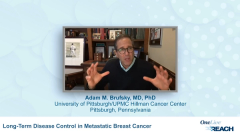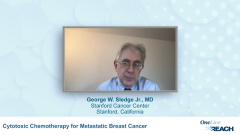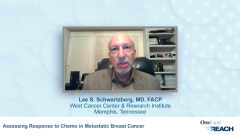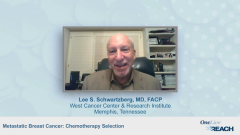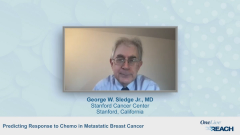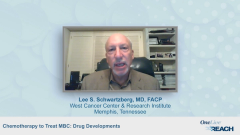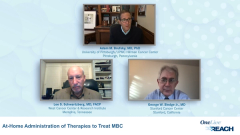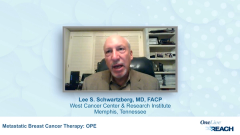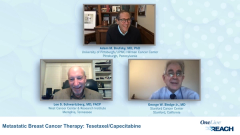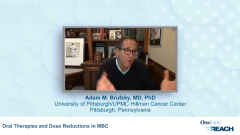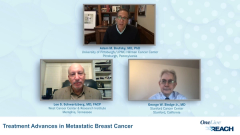
Cytotoxic Chemotherapy for Metastatic Breast Cancer
Episodes in this series

Adam M. Brufsky, MD, PhD: Is this going to be a chronic disease that we take care of for long time? As both of you know, having been intimately involved and doing this over many years, chemotherapy remains. Despite the fact that we have a lot of targeted agents, with the latest being CDK4/6 inhibitors in breast cancer, we still need chemotherapy. Let me start at the beginning. Do you think we are ever going to be at a point where we are not going to need it at all? I will start with George: Do you think we will ever be at the point that we will never need cytotoxic chemotherapy for this disease?
George W. Sledge Jr., MD: I do not know. Chemotherapy is good at inducing apoptosis.
Adam M. Brufsky, MD, PhD: Yes.
George W. Sledge Jr., MD: That is its saving grace. It kills cancer cells, and it does so relatively efficiently in many patients. It is going to depend to a great extent on how well we understand the biology of drug resistance for endocrine agents, for HER2 [human epidermal growth factor receptor]–targeting agents, and everything else that we have brought along over the last couple of decades.
Because cancers tend to be heterogeneous, because they frequently have mutations that confer resistance, and because we are dealing with relatively large-volume disease where the play of chance allows you to develop mutations on a large scale that will make you resistant, it is hard to imagine that chemotherapy goes away anytime soon unless we have some major changes in the field. One could imagine, for instance, a more effective immune approach allowing you to better control the cancer or to wipe out cancer. But not any time soon, I suspect.
Adam M. Brufsky, MD, PhD: Lee, what do you think? Same kinds of thoughts?
Lee S. Schwartzberg, MD, FACP: I still tell my fellows that they will be giving chemotherapy through their careers, most likely. I get a bit less emphatic about it every year. If we have a couple of paradigm shifts that we do not see coming—it is hard to predict the future, as Yogi Berra once said—it could happen that we could diminish or get away from chemotherapy.
What I see happening is that chemotherapy administration is getting smarter through the use of antibody-drug conjugates, for example. That is clearly, in my opinion, the next generation of the way we will be giving chemotherapy over the next decade or 2, as well as other potential delivery systems that are more sophisticated and cause less toxicity.
Transcript Edited for Clarity


